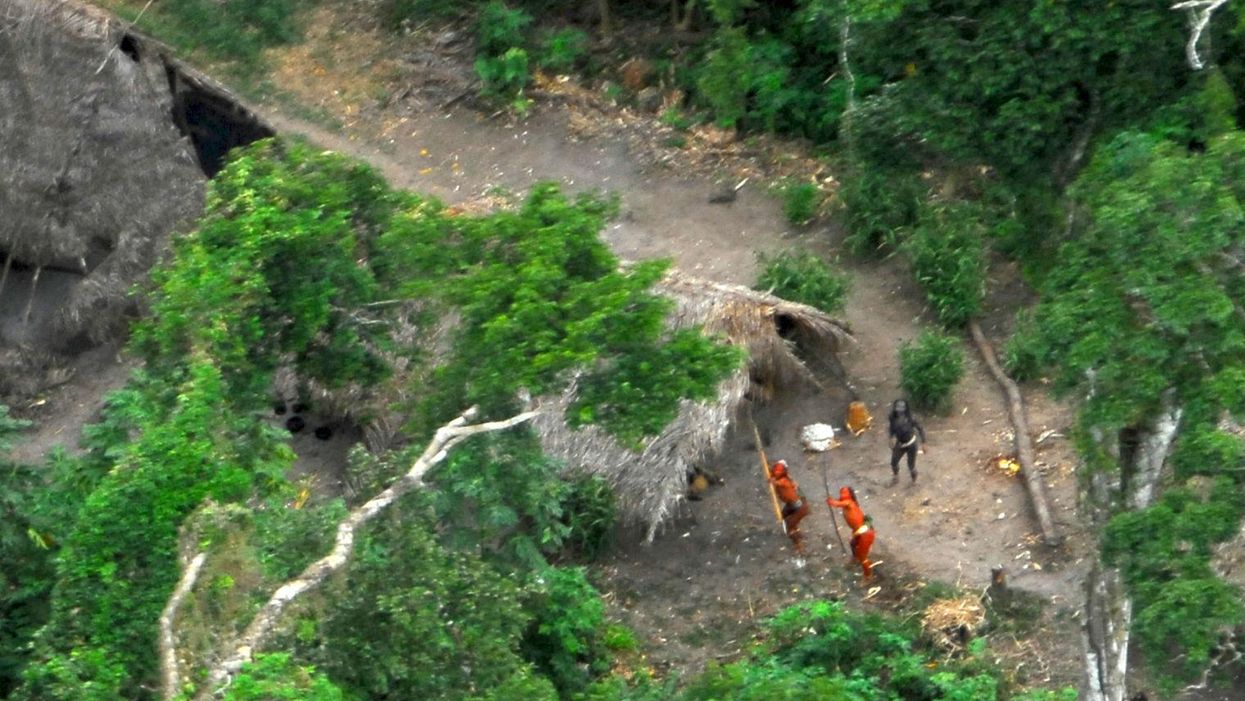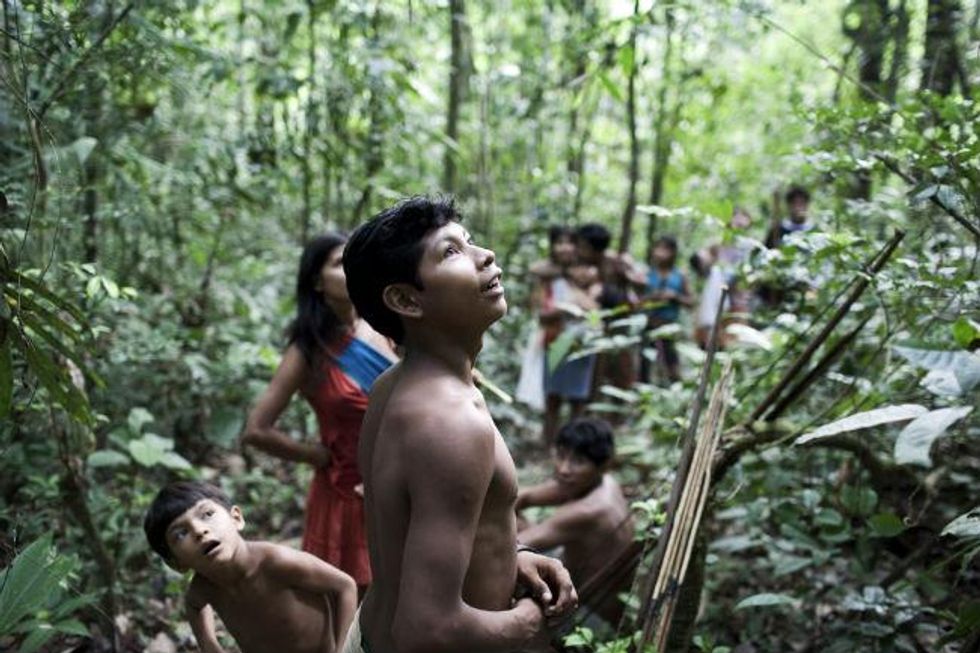News
Indy100 Staff
Oct 08, 2015

Uncontacted Indians in Brazil seen from the air during a Brazilian government expedition in May 2008
There are thought to be around 130 uncontacted tribes in the world today, the majority in Brazil.
Tribal people belonging to 240 tribes overall make up 0.4 per cent of Brazil's total population, but back in 1500 the country had 2,000 tribes.
Tribes all over the world face myriad threats to their continued existence, some of which we have documented below.
Awá
One of the few nomadic hunter-gatherer tribes left in Brazil, with only 355 surviving members.
© Domenico Pugliese/Survival. Contacted Awá number about 360, and it is thought that around 20-25 per cent more are uncontacted
Location: The eastern Amazon
Threats: Agro-industrial projects, cattle ranches, colonist settlements, illegal loggers and disease.
Sentinelese
Have probably lived in the Andaman Islands for up to 60,000 years.
© Indian Coastguard/Survival: In the wake of the 2004 tsunami this member of the Sentinelese tribe was photographed firing arrows at a helicopter
Location: North Sentinel Island, India
Threats: Natural disasters (2004 tsunami), disease.
Korowai
Known for their distinctive treehouses that tower over the jungle on spindly legs.
Location: Papua New Guinea
Threats: Invasion by miners, plantation owners, loggers and others seeking the natural resources of tribal lands.
Kawahiva
Uncontacted Indians. Fewer than 50 believed to be left.
© FUNAI: The uncontacted Kawahiva recorded during a rare chance encounter between the Indians and Brazilian government agents
Location: The Amazon, Brazil
Threats: Loggers invading their land and violently attacking them. Disease spread by outsiders as they do not have immunity to most common diseases.
The actor Mark Rylance is fronting a new campaign to urge the Brazilian government to create a rainforest reserve for the semi-nomadic Kawahiva tribe.
You can watch 'The Last Of the Kawahiva' film and read more about the Survival International campaign here.
With thanks to Survival International for the pictures.
More: How Valentine's Day is contributing to the rainforest's decline
Top 100
The Conversation (0)













